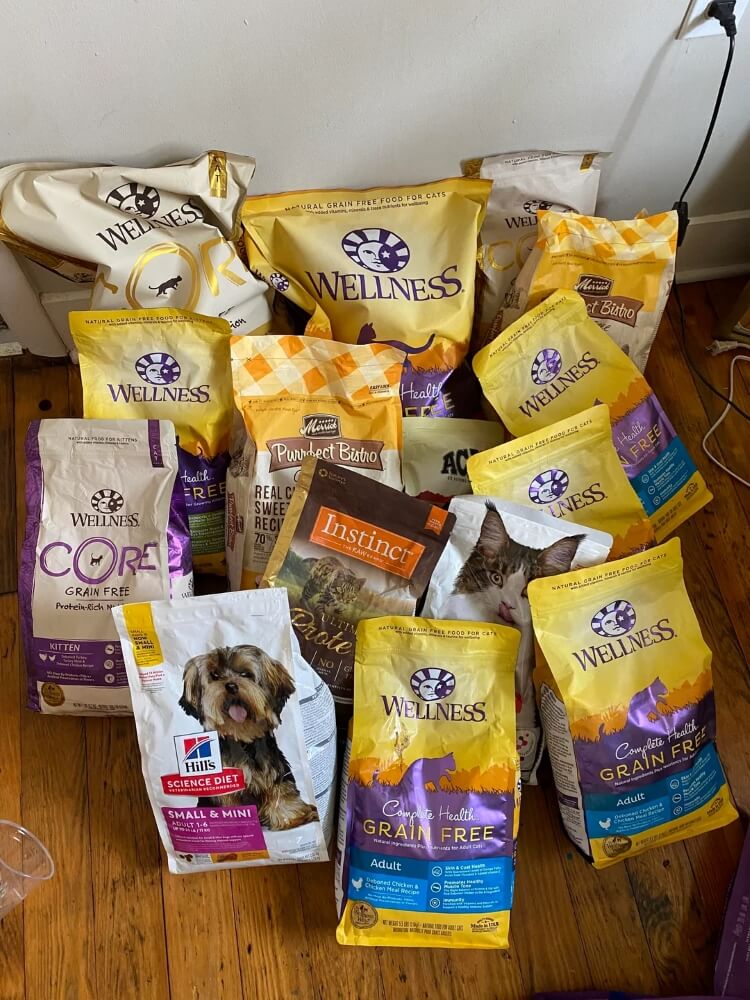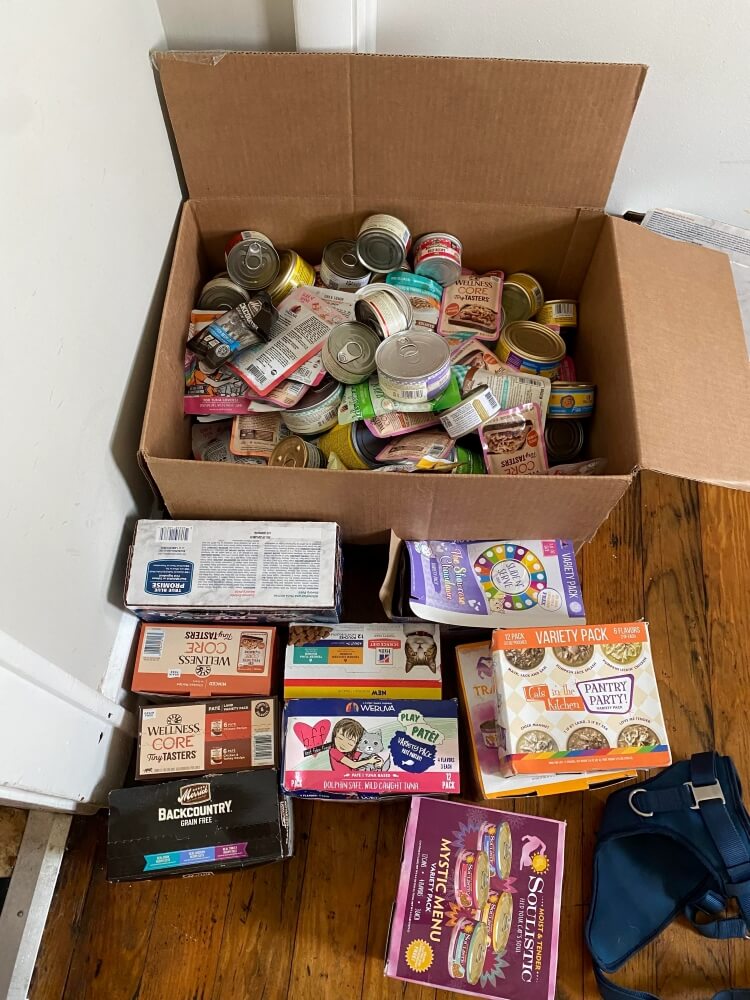An experienced dumpster diver showed off their latest haul on Reddit, astounding the r/Anticonsumption community with the frustrating amount of pet food set to go to waste.
What's happening?
The original poster shared two images revealing hundreds of dollars' worth of cat, dog, and rabbit food they redeemed from an unnamed pet store's dumpster.


A number of commenters rightfully warned the OP to check for recalls or expiration dates, but the OP indicated they had already done their due diligence.
"You'd be shocked at what companies throw away for no reason," they added.
Others were amazed by the quality of items headed to the landfill before the OP intervened.
"That Stella and Chewy's ish is soooooooo expensive!!! Animals love it but wow," one person said. "That's many hundreds of dollars in the second pic alone."
"A lot of higher-end brands in there, nice find!" someone else wrote.
Why is this important?
When humans experience food insecurity, their pets often do, too, and with the cost of pet food on the rise, it is becoming more difficult for owners to feed their pets. According to a May news release from the Humane Society, financial reasons have prevented 43% of pet owners from paying for at least one of their animal companions' needs at one point or another.
Another commenter highlighted how food waste is a major issue in the United States, speculating, "Why would it be any different for dog food?"
In fact, Feeding America estimates that Americans toss nearly 40% of all food annually — sending $473 billion worth of waste to landfills, where the items produce potent planet-warming gases such as methane. Scientists have linked rising global temperatures to more intense extreme weather that has wreaked havoc on crops and contributed to higher prices at the store.
Disposal isn't the only part of the food system creating pollution, though. All About Feed notes pet food production alone generates around 64 million tons of plant-warming gases every year.
Why would the pet store throw out the food?
Food safety is a complex issue. If the pet store feared the items were somehow contaminated, it's understandable why it tossed them.
"I work at PetSmart, and the only food we've ever thrown out is stuff returned by customers that have been opened. Because we can't verify where it's been or what's been put in it," one commenter shared. "Otherwise, when it gets close to its expiration date, we put it on sale for 50%, and it sells."
However, since the OP's finds seemed to be sealed and weren't part of a recall, commenters were upset the staff didn't try to donate them — similar to how grocery stores including Kroger and Trader Joe's have given away thousands of dollars' worth of food to prevent refrigerated or frozen items from going bad during power outages.
"This is mind-boggling," one commenter wrote. "My local humane society is always looking for donations on supplies — UGH!!!"
What can I do about food waste more broadly?
Proper storage will go a long way toward keeping your food fresh for longer, which is a win for your wallet and the environment. You can even freeze fruits, vegetables, soups, and more to extend the shelf life of items.
The same goes for meat — which may be particularly helpful if you're part of the growing number of people increasing their consumption of plant-based products to reap the associated health benefits, including lower risks of heart disease, cancer, and stroke.
Join our free newsletter for good news and useful tips, and don't miss this cool list of easy ways to help yourself while helping the planet.









